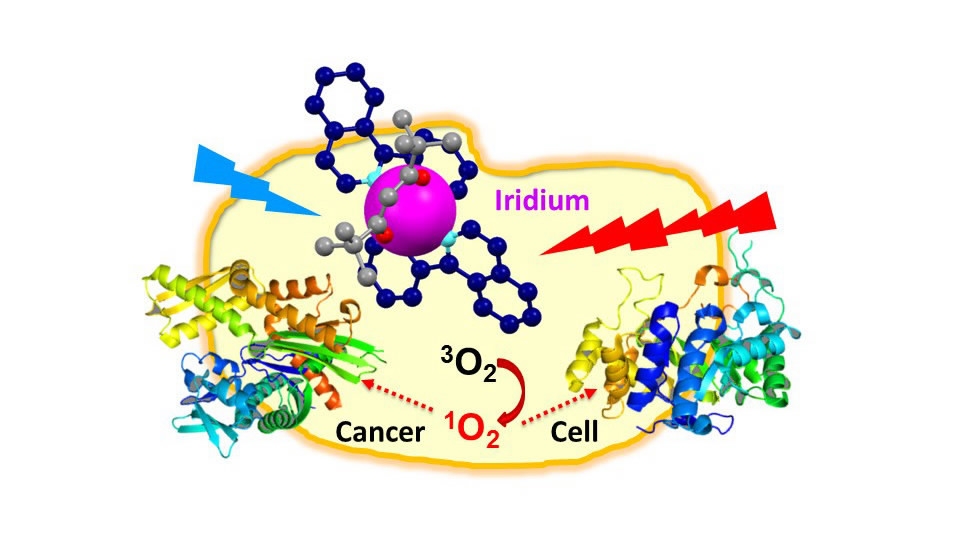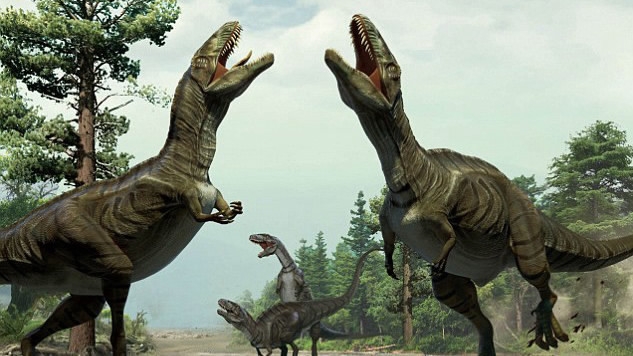
Health
19:13, 07-Nov-2017
Metal from asteroid that killed dinosaurs can 'destroy' cancer cells

Metal from the asteroid that caused the extinction of the dinosaurs can be used to target and destroy cancer cells, according a report published by the University of Warwick.
The report said researchers from the UK university and China’s Sun Yat-Sen University have demonstrated that iridium can be used to kill cancer cells by filling them with a deadly version of oxygen, while causing no harm to healthy tissue.
The researchers created a compound of iridium and organic materials, which can be directly targeted toward cancerous cells, transferring energy to the cells to turn the oxygen inside them into singlet oxygen, which is poisonous and kills the cells, without harming any healthy tissue.

Iridium, the metal from the asteroid that caused the extinction of the dinosaurs, can be used to target and destroy cancer cells, according to a report. /AP Photo
Iridium, the metal from the asteroid that caused the extinction of the dinosaurs, can be used to target and destroy cancer cells, according to a report. /AP Photo
Researchers have also, for the first time, discovered exactly which parts of the cancer cells are affected by the treatment, using highly advanced technologies to analyze individual cell proteins.
Their analysis proved that the iridium organic compound could damage proteins for heat-shock stress and glucose metabolism, which are both key molecules in cancer.
The research findings were published in the Angewandte Chemie, a German-based scientific journal.
"The precious metal platinum is already used in more than 50 percent of cancer chemotherapies. The potential of other precious metals such as iridium to provide new targeted drugs which attack cancer cells in completely new ways and combat resistance, and which can be used safely with the minimum of side effects, is now being explored," said Professor Peter Sadler of the University of Warwick who leads the research.

Professor Peter Sadler from the University of Warwick. /Photo via warwick.ac.uk
Professor Peter Sadler from the University of Warwick. /Photo via warwick.ac.uk
Photochemotherapy, targeting cancer cells with lasers, is quickly becoming a viable, effective and non-invasive treatment as patients are becoming more tolerant of traditional therapies, said the university's report on the new findings.
Iridium is a rare metal on Earth, but abounds in meteoroids, and large amounts of the metal have been discovered in the Earth's crust from around 66 million years ago, leading to the theory that it came to the planet with an asteroid which caused the extinction of the dinosaurs.
First found in 1803, iridium is the second densest element in the world and the most corrosion-resistant metal with a melting point over 2,400 C.
Source(s): China Daily

SITEMAP
Copyright © 2018 CGTN. Beijing ICP prepared NO.16065310-3
Copyright © 2018 CGTN. Beijing ICP prepared NO.16065310-3